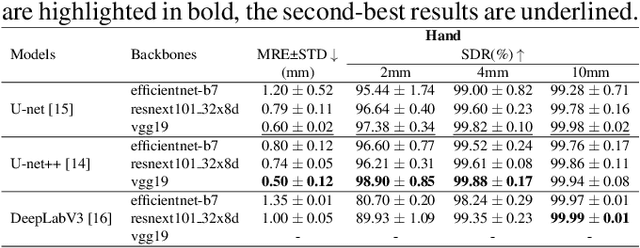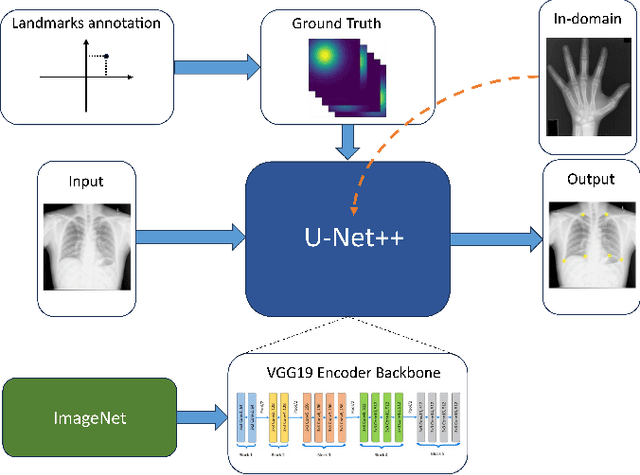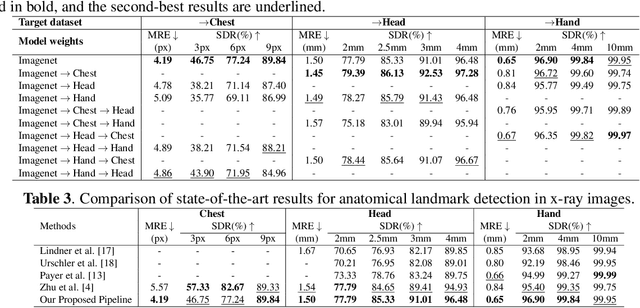Is in-domain data beneficial in transfer learning for landmarks detection in x-ray images?
Paper and Code
Mar 03, 2024



In recent years, deep learning has emerged as a promising technique for medical image analysis. However, this application domain is likely to suffer from a limited availability of large public datasets and annotations. A common solution to these challenges in deep learning is the usage of a transfer learning framework, typically with a fine-tuning protocol, where a large-scale source dataset is used to pre-train a model, further fine-tuned on the target dataset. In this paper, we present a systematic study analyzing whether the usage of small-scale in-domain x-ray image datasets may provide any improvement for landmark detection over models pre-trained on large natural image datasets only. We focus on the multi-landmark localization task for three datasets, including chest, head, and hand x-ray images. Our results show that using in-domain source datasets brings marginal or no benefit with respect to an ImageNet out-of-domain pre-training. Our findings can provide an indication for the development of robust landmark detection systems in medical images when no large annotated dataset is available.
 Add to Chrome
Add to Chrome Add to Firefox
Add to Firefox Add to Edge
Add to Edge